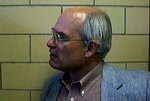- "Unfortunately, the nature of biological and social science is such that it is impossible to simply apply physical science’s way of theorizing to them. In biology, the problem is that natural history plays a major role. All life on Earth evolved. It is simply not possible to experiment with living systems as it is with physical systems. In social science, the main problems are consciousness and the sheer number of possible causal variables. Neither biology nor social sciences have discovered any laws similar to those of the physical sciences. Even Darwin’s theory of evolution is basically a historical account coupled with a small handful of causal mechanisms such as common descent, natural selection, sexual selection, and gradualism. In psychology, the search for ideal theories of behavior has been unsuccessful and has led to modifications to ideal theory."
- "The success of physical science and its theories has been so spectacular that biologists and social scientists naturally tried to imitate them. However, theories in biological science and social science differ considerably from the ideal theories in physical science. Unfortunately, the nature of biological and social science is such that it is impossible to simply apply physical sciences's way of theorizing. Neither biology nor social science has yet discovered any laws as universal as those of the physical sciences (p. 26-27)."
Smith gives four ways in which biological theory is different from physical theory. He also points out that none of the following features of biological theory are common in physics. Let's looks at the four features one by one.
1. Contingency: Smith uses contigency in a way similar to replication. He notes that unlike in the physical sciences, it is impossible to repeat the results of evolution by "replaying the tape." In fact, nearly everyone agrees that were the Earth to undergo a replay of the last 5 billion or so years the results would be very different. Those differences, of course, don't come from evolution or its mechanisms. (In fact, evolution itself is a product of our natural history. In any replay, there is no guarantee that evolution itself would again emerge. The smart money, most likely, would be against such a re-emergence.) Instead, the differences in the replay would come from unforeseen and unpredictable events such as meteorite impacts and other catastrophes.
2. Memory: To Smith, memory encompasses the creation of systems that can reliably reproduce the information contained within them. That mechanism, of course, is carried out by RNA and DNA and is quite remarkable in its ability to reproduce the information and to act upon the results of that information. Smith notes just how difficult it is to create memory systems that have survived for millions of years.
3. Control: In control, instructions mostly flow in one direction with incomplete feedback. In biological systems, natural selection functions as one controlling process. Only a few biological designs survive to reproduce themselves. In systems created by humans control is necessary too. However, we have had little luck as yet in constructing control systems able to repair and maintain themselves. In contrast, living systems can repair and maintain themselves while they are alive.
4. Individuality: Evolution and genetics end up creating unique individuals composed of common elements. Our 30,000 genes are shuffled to create individuals who are all different (excepting identical twins). The odds of two individuals sharing the same genetic components are incredibly small, on the order of 1 in 70 trillion. Smith notes that sheer numbers prevent biologists from looking at individuals. Instead, they seek out underlying "regularities" in living systems such as the citric acid cycle.
Biology, thus, has a different set of scientific questions than does physical or social science. One of the most profound of its questions is how life emerged from non-living processes. The nature of biology forces its theorists to adopt different modes of theorizing. Like social scientists, biologists, too, must seek their own ways to create theories and not simply ape the physical sciences.



2 comments:
Post a Comment